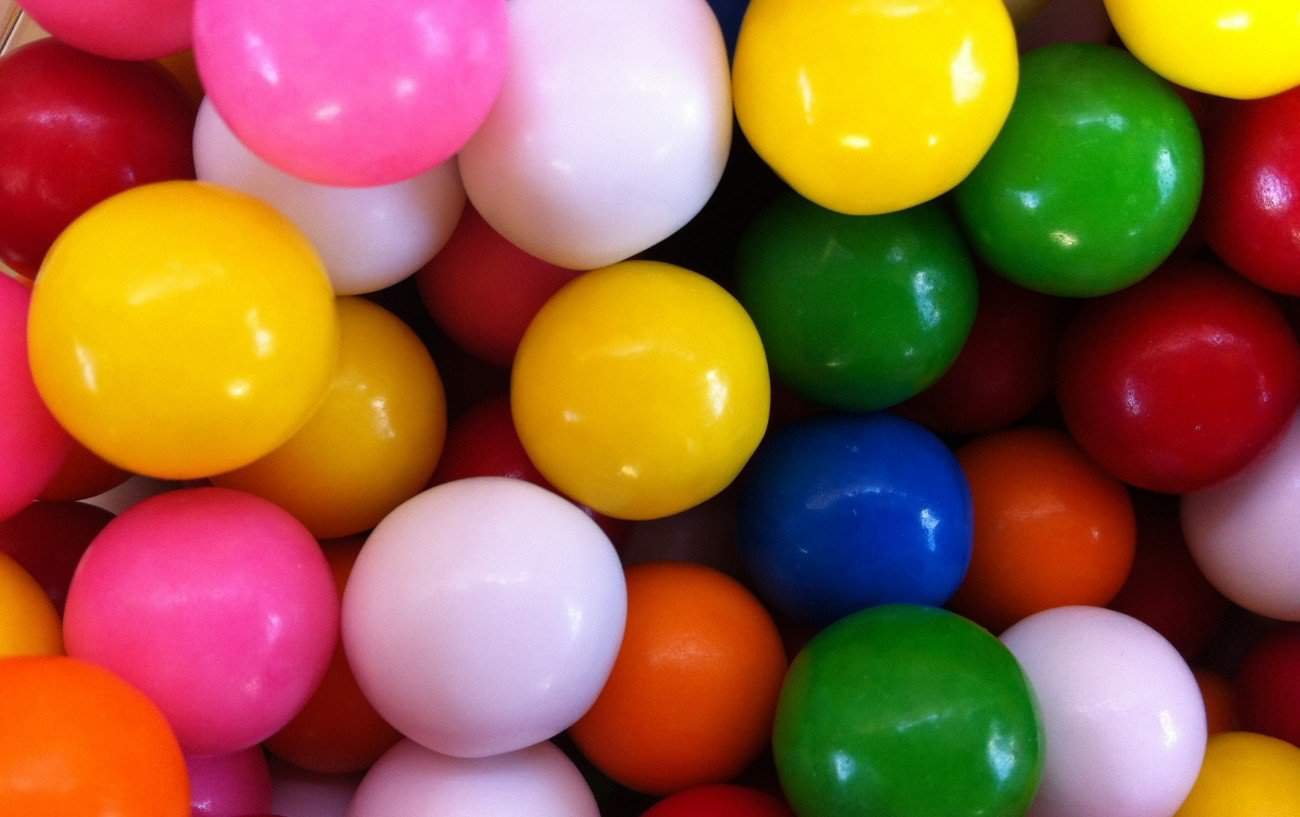There’s an old idiom about how it can be difficult to walk and chew gum at the same time, but some runners prove that’s far from true by upping the ante and chewing gum while running.
But, many times, you won’t find these runners unwrapping a piece of Orbit gum, Trident, or classic Bubblicious. Instead, they are chomping on running gum—special gum for runners that can improve your performance.
Although RunGum is the pioneer in the running gum space and hands down the most popular running gum runners are chewing during their workouts, there are other specialty running gums as well, all of which are designed to improve performance and give runners an edge.
In this guide, we will discuss running with gum, including the pros and cons of running with regular gum and the intended purpose and benefits of running gum or specialty gum for runners.
We will look at:
- Is It Safe to Run With Gum?
- The Benefits of Running With Gum
- What Is Running Gum?
- Does Running Gum Work?
- Benefits of Running Gum
Let’s get started!

Is It Safe to Run With Gum?
Most people can safely run while chewing gum, though every runner should be aware that chewing gum while running can potentially be a choking hazard.
Gum does not dissolve in your throat, so if you swallow it, you have to dislodge it by either coughing or having the Heimlich maneuver performed on you. Therefore, if you’re running alone and don’t have a running buddy to potentially help thrust a piece of gum out of your mouth, you should feel confident in your own ability to expel it.
The Benefits of Running With Gum
Sports gum, or specialty running gum, has specific benefits based on the formulation of the product, but even regular chewing gum that you can pick up at the checkout counter at nearly any store can be helpful while you are running. The following are the benefits of chewing gum while you are running:

#1: Chewing Gum While Running Can Prevent Dry Mouth
Many runners suffer from dry mouth while running, and it’s not always from dehydration. If you’re either breathing through your mouth or running with your mouth closed most of the time, the mouth can become dry and stale.
Chewing gum can add moisture and trigger your salivary glands to secrete more saliva.
#2: Chewing Gum While Running Can Be Distracting
Pushing through a hard speed workout or getting through a 20-miler by yourself on a rainy morning can be mentally challenging.
Some runners find that chewing gum while running can be a bit of a mental distraction from the discomfort of pushing your body or the endless miles in solitude.

#3: Chewing Gum Can Improve Your Rhythm
It might sound like a stretch, but chewing gum while running can improve the rhythm of your stride or the evenness of your cadence while you run. Settling into a consistent rhythm improves your running economy and efficiency, making the miles feel easier.
#4: Chewing Gum Can Decrease Anxiety and Tension
Chewing gum has been shown to reduce anxiety and stress, so if you’re anxious or nervous before a race or hard workout, chewing gum while you run during your warmup may dismantle some of the nervous mental chatter.
Additionally, anxiety and stress often manifest in somatic symptoms such as muscle tension. A tight upper body and chest, for example, will make you a less efficient runner, so if you can potentially relax a little by chewing gum, you may just feel that much looser and relaxed in your running stride.

#5: Chewing Gum While Running May Improve Your Breathing
Although opinions vary, some runners find that chewing gum while running can support better breathing mechanics and breathing patterns during running.
Research indicates that runners should optimally inhale and exhale through the nose while running, or at least inhale through the nose and exhale through the mouth. However, it’s not uncommon for runners to breathe in and out through the mouth.
Chewing gum while running can encourage nasal inhalation because when the gum is in your mouth, your body naturally defaults to nasal breathing since the mouth is occupied.
Furthermore, if nasal or sinus congestion is the primary deterrent to inhaling through the nose while running, chewing peppermint, spearmint, or other strong, minty gum can help open the nasal passages for easier airflow.

#6: Chewing Gum While Running Can Be Fun
Hey, it sounds silly, yet most runners will admit that it’s true: chewing gum is fun and can feel like a bit of a treat.
If you reserve your gum chewing time to only when you’re running, the gum can sweeten the deal and give you a little extra pull to lace up your running shoes and head out for your run.
What Is Running Gum?
Running gum, such as RunGum, is a specialty chewing gum for runners designed to improve athletic performance.
Like energy gels, pre-workout drinks, BCAAs, or creatine, running gum is considered an ergogenic aid or sports supplement because it has ingredients known or believed to enhance exercise performance.
Although you can chew running gum any time, it is intended to be used just before and during workouts.
So, what exactly is in running gum?
Most running gums are regular chewing gum with the addition of caffeine, taurine, and B vitamins. For example, one serving (two pieces) of regular strength RunGum contains 50 mg of caffeine, 20 mg of taurine, 2.2mg (110% DV) of vitamin B6 (as pyridoxine hydrochloride), and 3mcg (125% DV) of vitamin B12 (as cyanocobalamin).
There are also extra-strength flavors with double the caffeine and the same concentrations of the other ingredients in a single piece.

Does Running Gum Work?
The International Society of Sports Nutrition Position Stand on caffeine and exercise Performance notes that caffeinated chewing gum is an effective ergogenic aid, especially for endurance performance. It has been shown to increase cycling performance when ingested immediately before exercise because it has a rapid delivery method.
Now, let’s delve into sports gum or specialized running gum. Gum for runners inherently carries the same benefits of running with gum of any type, as well as additional perks based on the performance-enhancing ingredients in these running gum products.
Caffeine
The caffeine content of running gum is typically in line with the average cup of coffee or energy drink. Most gum for runners contains 100 mg of caffeine per serving, while the average cup of coffee contains 95 mg, and most energy drinks fall around 80-120 mg.
Caffeine is a stimulant, so it can increase alertness and energy. Caffeine may also increase your stamina or time to exhaustion during endurance exercise. For example, one study found that ingesting 2.5 mg/kg of caffeine increased time to exhaustion during high-intensity exercise (11.2 minutes with caffeine versus 7.9 minutes without).
Studies have demonstrated that caffeinated running gum or sports gum is an effective delivery method of caffeine during exercise and provides greater performance improvements than tablets, pills, or swallowed forms that bypass the chewing in the mouth.

One study found that caffeinated chewing gum reduced fatigue during repeated, high-intensity cycling bouts. Subjects who had a placebo, non-caffeinated gum saw a performance decline of 5.8%, whereas those who had the caffeinated sports gum only saw a decline of 0.4%.
Those with the caffeinated gum also showed increased testosterone levels and decreased cortisol levels.
Taurine
Taurine is an amino acid that has been shown to confer a variety of physiological benefits during exercise performance, such as increased fat oxidation, increased VO2 max and time to exhaustion, increased power, and increased tolerance to high-intensity exercise, and decreased lactate production and cellular damage.
Vitamins B12 and B6
B vitamins, especially vitamin B12 and B6, play a key role in energy production and metabolism, nerve function, and hemoglobin production.

Benefits of Running Gum
Given the ingredients in running gum, it has the potential to improve aerobic performance by enhancing focus, energy, fat oxidation, time to exhaustion, and cellular metabolism during exercise.
Some runners also find gum to be a more convenient delivery method of caffeine compared to energy drinks or gels.
Running gum can be tucked into a pocket and doesn’t slosh around in your stomach, making it a good option for runners with sensitive digestive tracts. It also provides a clear dose of caffeine so you can be more specific with your dosing and race-day nutrition plan.
Have you tried running gum before? Do you usually run with regular gum or sports gum? Let us know what works for you!
If you are looking for other boosts of energy during your running or racing, take a look at our 18 Whole Food Alternatives To Energy Gels For Runners and The 26 Best Snacks For Runners.
And for information on general nutrition for runners, we have the following just for you:
Running Nutrition Guide: What To Eat, For Runners, Ultramarathon Nutrition Guide: What To Eat Before, During, and After an Ultra, and The Best Popular Diets For Runners: 3 Healthy Choices













